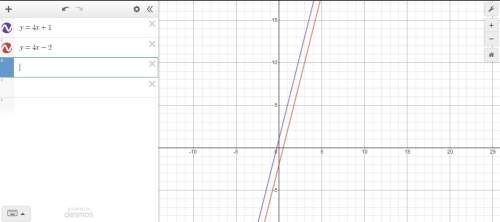
Mathematics, 11.03.2020 21:47, lauren21bunch
A common inhabitant of human intestines is the bacterium Escherichia coli. A cell of this bacterium in a nutrient-broth medium divides into two cells every 20 minutes. The initial population of a culture is 71 cells. (a) Find the relative growth rate. (Assume t is measured in hours.) k =

Answers: 1
Other questions on the subject: Mathematics


Mathematics, 21.06.2019 18:30, mauralawson
Aball is thrown from a height of 139 feet with an initial downward velocity of 15 ft/s. the ball's height h (in feet) after t seconds is given by the following. h=139-15t-16t^2 how long after the ball is thrown does it hit the ground? round your answer(s) to the nearest hundredth. (if there is more than one answer, use the "or" button.) t =
Answers: 1


Mathematics, 21.06.2019 23:30, abell23000
Afriend of mine is giving a dinner party. his current wine supply includes 10 bottles of zinfandel, 8 of merlot, and 11 of cabernet (he only drinks red wine), all from different wineries. (a) if he wants to serve 3 bottles of zinfandel and serving order is important, how many ways are there to do this? ways (b) if 6 bottles of wine are to be randomly selected from the 29 for serving, how many ways are there to do this? ways (c) if 6 bottles are randomly selected, how many ways are there to obtain two bottles of each variety? ways (d) if 6 bottles are randomly selected, what is the probability that this results in two bottles of each variety being chosen? (round your answer to three decimal places.) (e) if 6 bottles are randomly selected, what is the probability that all of them are the same variety? (round your answer to three decimal places.)
Answers: 3
Do you know the correct answer?
A common inhabitant of human intestines is the bacterium Escherichia coli. A cell of this bacterium...
Questions in other subjects:

Mathematics, 16.01.2020 09:31


History, 16.01.2020 09:31


History, 16.01.2020 09:31


Social Studies, 16.01.2020 09:31


Social Studies, 16.01.2020 09:31

Biology, 16.01.2020 09:31


 , where t is the no of hours.
, where t is the no of hours.






